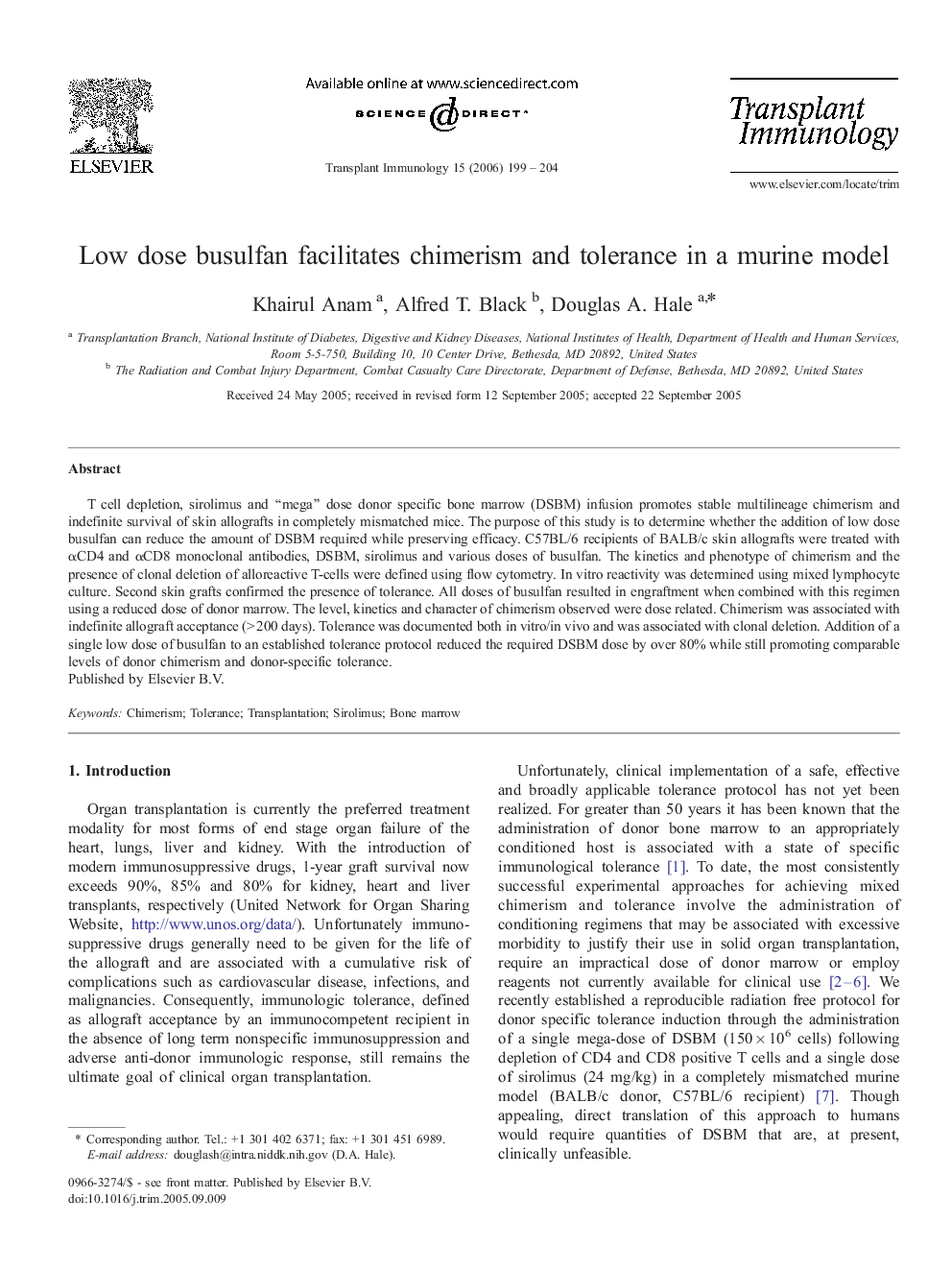| Article ID | Journal | Published Year | Pages | File Type |
|---|---|---|---|---|
| 3392632 | Transplant Immunology | 2006 | 6 Pages |
T cell depletion, sirolimus and “mega” dose donor specific bone marrow (DSBM) infusion promotes stable multilineage chimerism and indefinite survival of skin allografts in completely mismatched mice. The purpose of this study is to determine whether the addition of low dose busulfan can reduce the amount of DSBM required while preserving efficacy. C57BL/6 recipients of BALB/c skin allografts were treated with αCD4 and αCD8 monoclonal antibodies, DSBM, sirolimus and various doses of busulfan. The kinetics and phenotype of chimerism and the presence of clonal deletion of alloreactive T-cells were defined using flow cytometry. In vitro reactivity was determined using mixed lymphocyte culture. Second skin grafts confirmed the presence of tolerance. All doses of busulfan resulted in engraftment when combined with this regimen using a reduced dose of donor marrow. The level, kinetics and character of chimerism observed were dose related. Chimerism was associated with indefinite allograft acceptance (> 200 days). Tolerance was documented both in vitro/in vivo and was associated with clonal deletion. Addition of a single low dose of busulfan to an established tolerance protocol reduced the required DSBM dose by over 80% while still promoting comparable levels of donor chimerism and donor-specific tolerance.
